XML API 8.0 SP 11 Release Notes
- Overview
- Enhancements to recurring meetings
- Support for Partner Credentials for CPAC Partners
- Enhancements to Collaboration Meeting Room (CMR) and Personal Room (PR) in user provisioning APIs
- Support For Deactivated Host Account
Overview
This release note describes the feature enhancements and improvements introduced in Webex® XML API 8.0.0 SP11. All features are backward compatible with existing integrations.
Important: Please note that this release includes changes to some of the XML API 8.0.0 schema. For more information, see the updated schema definitions below.
Enhancements to recurring meetings
Description:
Meeting Center has been enhanced to better support meeting series (recurring meetings) and meeting series exceptions. Both the XML API and the URL API support these enhancements. We encourage integrators to use these enhancements for meeting management. The XML API supports all functionality matching the support from web schedulers. Note that the URL API also supports recurring meeting enhancements but it will not support management of meeting series exceptions.
Affected APIs:
CreateMeeting, SetMeeting, CreateMeetingAttendee, RegisterMeetingAttendee, DelSession, DelMeeting, DelMeetingAttendee, lstSummarySession, lstCalendarSession, GetMeeting, GetSessionInfo
lstsummarySession response
The lstsummarySession request has the option to set a recurrence to true in order to see all recurring meetings. The following diagram shows the new elements of a lstsummarySessionResponse.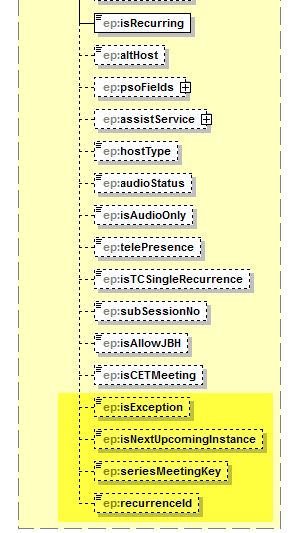
Table: Elements affected by recurrence set to true
The following table shows the new child elements of the session element that are returned as part of a lstsummarySessionResponse. These elements are returned when the value of the recurrence element in the lstsummarySession request is set to true.
| Element | Type | Description |
|---|---|---|
isException |
boolean |
true if the occurrence is an exception meeting, otherwise false |
isNextUpcomingInstance |
boolean |
true if the occurrence is the next upcoming occurrence of a meeting series (including no repeat meeting), otherwise false |
seriesMeetingKey |
long |
if the occurrence is an exception meeting, the series meeting key is set as its value; otherwise is 0 |
recurrenceId |
long |
the long value of the time stamp of the occurrence's start date (in GMT) |
lstCalendarSession response
The lstCalendarSessionsResponse element now includes elements isException, isNextUpcomingInstance, seriesMeetingKey, and recurrenceId as part of the session element.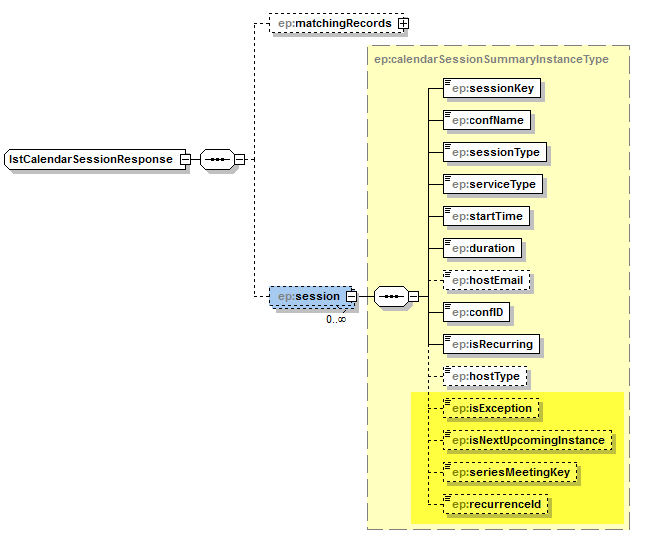
GetSessionInfo Request
The GetSessionInfo request now includes the element recurrenceKey as shown in the following diagram.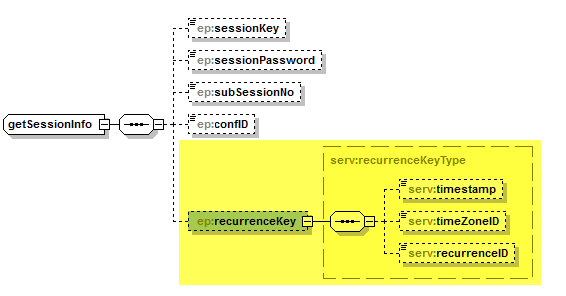
GetSessionInfo Response
The getSessionInfoResponse object now includes the elements isException, seriesMeetingKey, and hasException as part of the metadata element.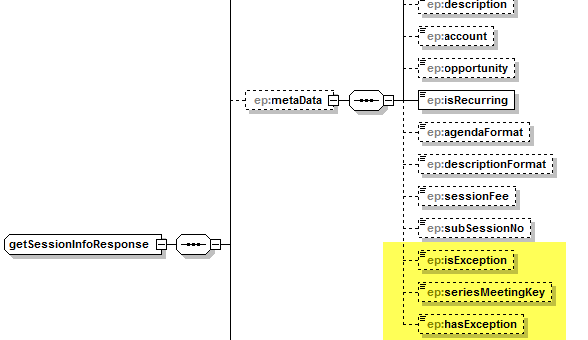
SetMeeting Request
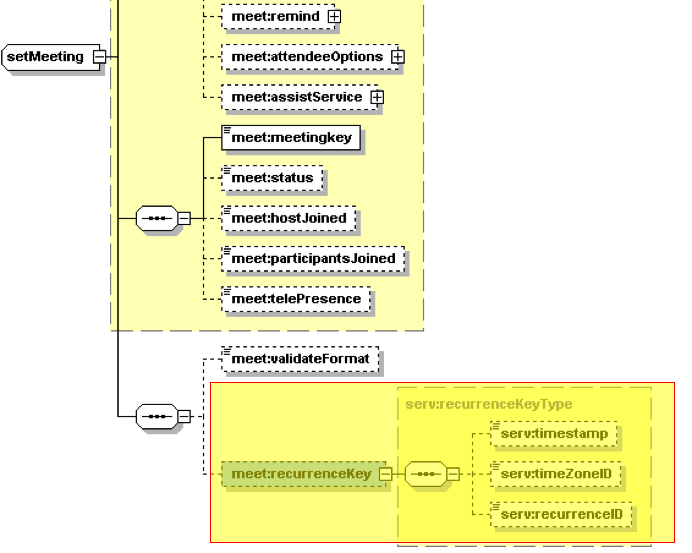
SetMeeting Response

CreateMeeting Request
The CreateMeeting request causes:- an update email to be sent to all users who are still included in the meeting series exception
- a cancel email to be sent to all users removed from the meeting series exception
- an invitation email to be sent to newly-added users of the meeting series exception
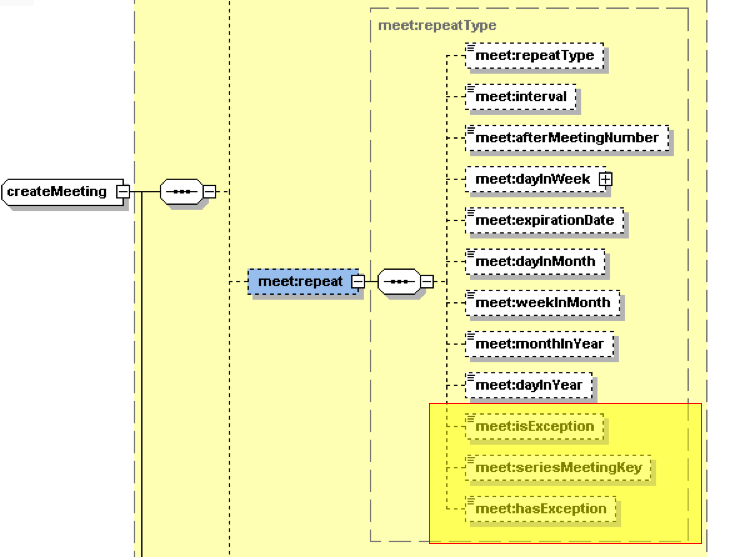
DelMeeting Request
The DelMeeting request:- can be applied to a meeting series
- will cause an update email to be sent to users associated with the occurrence
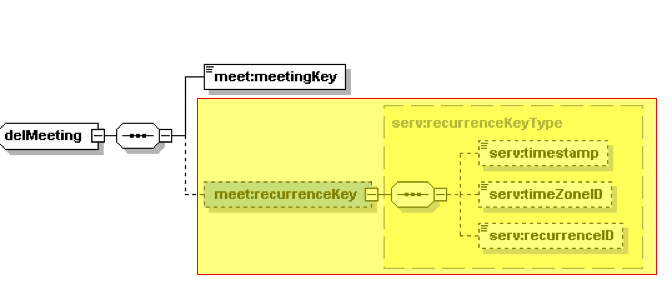
Further Details
On
pages that organize the lists as Daily, Weekly, and
Montly, the following apply:
- Lists show all
instances (regular meetings and meeting series exceptions) within the
specified date range.
- The list filters
out expired occurrences.
- The list filters
out removed occurrences.
- If there is a
meeting series exception, the list shows the meeting series exception.
- The list includes
a hyperlink for each series occurrence. The link
contains the confid
and start
time of the specific
occurrence. Clicking on the link directs the user to the detail page of
the specific occurrence.
- The list includes hyperlinks for each meeting series exception. The link contains the confid (but not the start time) of the meeting series exception.
On the All meeting page the response shows a list of meeting series (including both regular occurences and meeting series exceptions). A meeting series is listed as one item.
Support for Partner Credentials for CPAC Partners
Description:
For partners who have CPAC account credentials, a new authentication mechanism and new APIs to list sites associated with them are introduced. These capabilities will allow partners to use a single credential across all their sites to securely provision and manage users.
Pre-requisites:
- Partner should have a CPAC account.
- All sites the partner wants to provision should be associated with their CPAC account.
Partners can pass their CPAC credentials to the new APIs.
A request to lstMicroSites returns a list of sites that are associated with their CPAC account.
A call to getSiteAdminSessionTicket will use CPAC credentials and site name and return a site specific token. The site specific token can be used to successfully call user provisioning APIs.
New APIs:
lstMicroSites, getSiteAdminSessionTicket
LstMicroSites Request
The LSTMicroSites request sends a request to list all micro sites managed by a specified CPAC site.
LstMicroSites Response
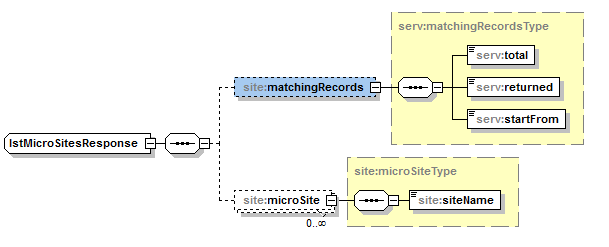
getSiteAdminSessionTicket Request

getSiteAdminSessionTicket Response

Enhancements to Collaboration Meeting Room (CMR) and Personal Room (PR) in user provisioning APIs
Description:
The provisioning APIs have been updated to support the Collaboration Meeting Room (CMR) feature for users. The Personal Room (PR) feature will automatically be available for all users. The API supports editing the PR Id and obtaining PR information.
- Four new elements/attributes added:
- Enable/disable CMR (including modifying access pin)
- Enable/disablePMR
- Set PMR as default for instant meetings
- Obtain/modify PMR URL
- Enabling CMR for a user will increase/decrease the CMR license count.
- Deleting a CMR provisioned user will clean up CMR account and decrease license count.
Affected APIs:
CreateUser, SetUser, GetUser, DeleteUser
CreatUser Support for Personal Meeting Room (PMR)
The CreateUser request depends on the setting of the isEnabledCET element and isEnabledPMR element, based on the Webex enabled settings.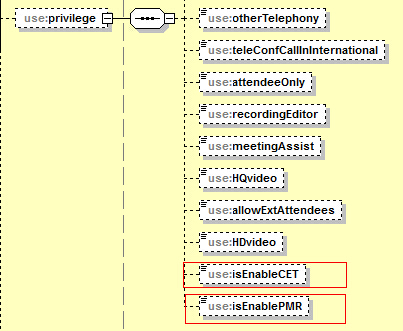
The CreateUser request also depends on the setting of the applyPMRForInstantMeeting element, which is based on the Site Admin settings.
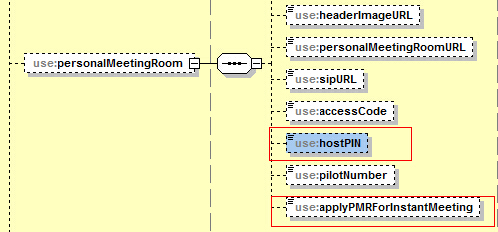
GetUser returns applyPMRForInstanceMeeting element
If the Webex enabled setting is enabled as CET, and the user is enabled with Personal Meeting Room and the Personal Meeting Room is enabled as Use Personal Room for all my instant meetings, then the GetUser request returns the applyPMRForInstantMeeting element with a value of true. Otherwise, if one of those settings is disabled, the GetUser request returns the isEnablePMR with a value of false, and does not return the personal meeting room information.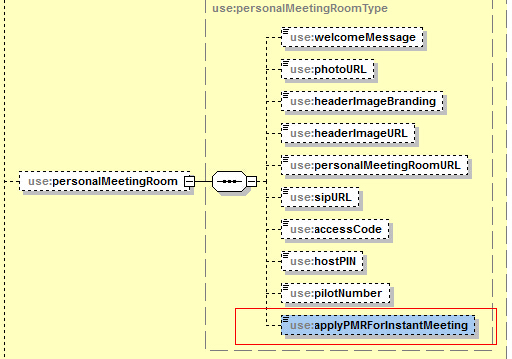
getUser Response
The schema description of the getUserResponse element has not changed. However, be aware that in order to preserve backward compatibility, the reponse uses the personalURL element instead of the personalMeetingRoomURL element (a child of the personalMeetingRoom response).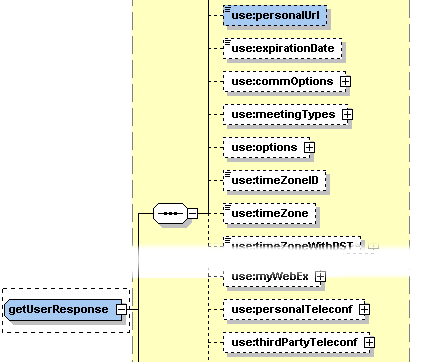
setUser Request
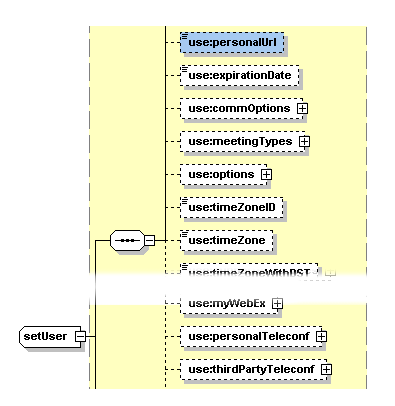
isEnableCET element referred to by the SetUser and DelUser Requests
Setting the personalURL element causes a check of the PMR enable element. If the site CET element isEnableCET is false, or if the user PMR element is not enabled, the request results in an error.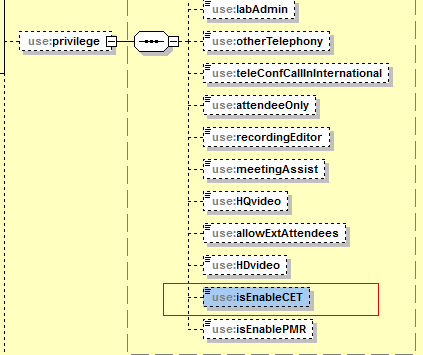
Further Details
The schema of the DeleteUser request has not changed. However, in order to support the Collaboration Meeting Room (CMR) feature, the following behavior has been implemented:
- When isEnableCET is true for the deleted user, the CET license count decreases and isEnableCET is set to false.
- When isEnablePMR is true for the deleted user, the related static PMR meeting is removed and isEnablePMR is set to false. The PMR static meeting is removed from the wbxuserextinfo/CMRAccessCode item.
Support For Deactivated Host Account
Description:
The LstsummarySession request does not return meetings hosted by or on behalf of a host whose account is de-activated. For example:
- Example: if Host A schedules a meeting, and the site
administrator subsequently deactivates Host A’s account,
the returned session list will not contain Host A’s meetings. - Example: if Host A schedules a meeting for Host B, and the
site administrator subsequently deactivates Host B’s
account, the returned session list will not contain Host B’s (the deactivated host’s) meetings. - Example: if Host A schedules a meeting and invites Host B
as an alternate host and Host C as an attendee, and the
site administrator deactivates Host A’s account, the returned session list will not contain the deactivated
host’s meetings — neither for Host B nor for Host C.
Affected APIs:
lstSummarySession
The schema of the LstsummarySession request has not changed. However, the reponse has been changed to account for a deactivated host account, as described above.
